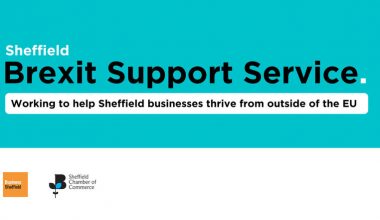Businesses looking to trade internationally need guidance, now more than ever with Brexit looming. Brightfinch’s Claire Dalton gives unLTD’s Chris Coates an overview of the challenges faced by manufacturers and wholesalers when importing and exporting – and shares the solutions available to trading efficiently and minimising import taxes
If a business is importing or exporting goods, what does it need to have in place?
“Businesses will need an EORI number, and the correct commercial documentation such as a commercial invoice and packing list. An EORI number is a unique ID code used by customs authorities to identify a trader for customs purposes.
“In order for goods to cross the border, a customs declaration, which details goods being imported and exported, must be submitted. Completing one is complex and requires software to access the HMRC IT system, so many traders appoint an agent to do it on their behalf.
When importing goods, after the customs declaration has been cleared any import VAT or customs duty must be accounted for before the goods can be released from customs control. When exporting, an export customs declaration must be completed and receive clearance before the goods can leave the UK.”
What challenges do manufacturers face when trading goods?
“When manufacturers are importing materials they use to make products, they will have to pay the import taxes mentioned above before they can access those goods. However, once they have used the materials to make products which they may potentially re-export, it is difficult to get a refund on those import taxes.
“In this scenario, we help clients implement Inward Processing. It allows traders to avoid paying customs duty or import VAT on those materials if they are processed and re-exported within an agreed timeframe, typically three to 12 months. This means that if the manufacturer re-exports those goods, no customs duty or import VAT is ever paid.
“If the processed goods are being sold in the UK, the trader will have to pay the customs duty and import VAT when they are cleared to home use. However, there are still tax saving opportunities as we can often base this calculation on the new commodity code following processing, which may have a lower duty rate.
“Inward Processing must be applied for and requires accurate record-keeping and regular reporting to HMRC, which is where we can help manufacturers wanting to use it to make sure they are following the regulations correctly.
“Manufacturers must also keep up to date with new trade agreements and provide the evidence required for their overseas customers to claim reduced import duty upon arrival at the destination country. We help clients obtain approved and registered exporter status, minimising the paperwork required and ensuring the landed cost of their goods is competitive in overseas markets.”
What options are available for wholesalers and the retail industry?
“To avoid paying customs duty and import VAT, wholesalers and retailers can take advantage of Customs Warehousing. This means that goods can be stored in a customs approved warehouse in order to delay paying those import taxes, and there is no time limit for the storage of the goods. Unlike inward processing, goods stored in a customs warehouse are subject to limited forms of handling. However, it gives wholesalers and retailers time to decide if the goods will be sold in the UK or re-exported. If sold in the UK, they are cleared to home use and import taxes are accounted for. However, if they are subsequently sold outside the UK, a re-export from customs control discharges the import tax liability so no import tax is ever paid.
“The unlimited storage time period of Customs Warehousing improves cash flow for traders as they can delay or avoid paying import taxes, and it means that stock is readily available for distribution without decisions about where it is going to be exported to needing to be made within a time limit.
“The same record-keeping, reporting and application requirements apply as with Inward Processing, so we work with wholesalers and retailers to set up and manage Customs Warehousing for them.”
Are these solutions available to traders post-Brexit?
“When we leave the EU, and regardless of whether we reach a trade deal, the regulations which currently apply to countries outside the EU will come into effect for all EU member states meaning that customs declarations will be required for goods in the UK and the EU. If no trade deal is reached, duty and import VAT must be paid by UK and EU importers.
“If traders who currently only trade within the EU are worried about the future, Inward Processing and Customs Warehousing are two options they may not be aware of.
“Despite the uncertainty over a trade deal, it still pays to plan as far ahead as possible for post-Brexit trading. We can support businesses who are assessing their options and help them establish what solutions are available to them to minimise the financial impact of Brexit on their trading.”
Are there any new facilities being introduced to help traders post-Brexit?
“From January 2021, Postponed VAT Accounting is being introduced by the UK Government so the import VAT no longer needs to be accounted for at the time of import, and can instead be offset during their normal VAT return.
“There are also phased controls for UK imports, the most significant being that a UK import customs declaration can be deferred for up to six months, providing the trader or agent holds the correct authorisation to permit this. In addition, goods subject to import health or plant controls will not apply to most movements until April, with only full controls imposed
by the UK Government from July 2021.”






